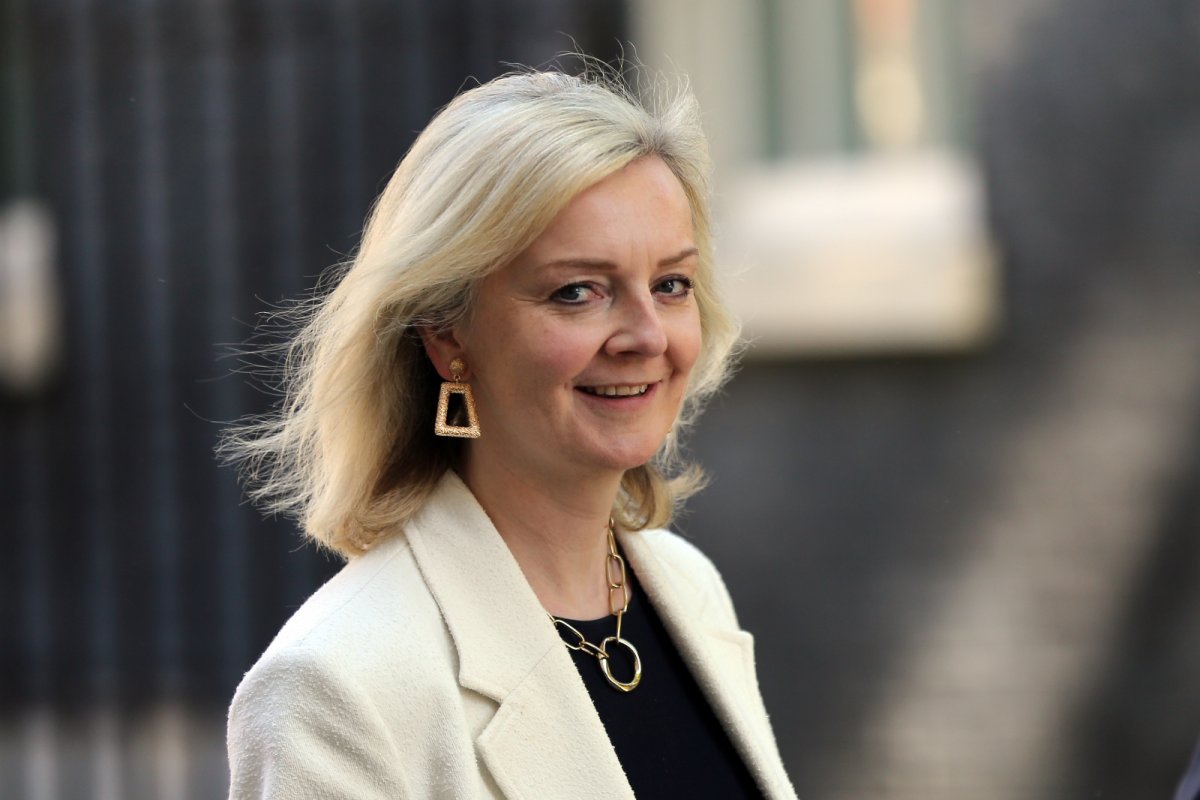 New PM Liz Truss . Copyright: I T S | Shutterstock
New PM Liz Truss . Copyright: I T S | Shutterstock
Welcome to new Prime Minister Liz Truss. Here are ten actions you could take to help our food system
We have a brand new prime minister and cabinet, but the current energy and food crises are long-established. Here are 10 practical, targeted actions to support families, farmers and food producers.
We all face a winter that will see energy rates and food prices soar, with families facing terrible decisions between heating their homes and feeding themselves and their children, and public sector caterers struggling to support the people they serve. Farmers are already struggling with drought conditions and rocketing costs and small food businesses are warning they will be forced to close.
But while we know that a very difficult winter is approaching, we can’t neglect the long term issues facing our food and farming system either or ignore the damage the broken food system does to our health and environment. To do that would be to store up more crises for further down the line. Fixing our food system could help us improve dietary health, meet our climate and nature targets and reduce health disparities. Smart investment, standards and the right food laws could also unlock innovation, drive economic growth and provide jobs.
Here are 10 practical, targeted actions Cabinet should take to support families and food producers through this crisis:
1. Extend Healthy Start to all families on Universal Credit and equivalent benefits with children under 5 years old, including families with no recourse to public funds. The programme needs a promotional drive and with inflation outstripping the value of the allowance, we call on government to increase the voucher value. (Supermarkets could help with this too)
2. Provide nutritious and sustainable free school meals for the 800,000 children living in poverty in England who are currently not eligible. We call for a commitment and roadmap towards universal school meal provision. Immediately and urgently, the first step is expanding access to families in receipt of Universal Credit, via a major uplift to the current scandalously low £7,400 income threshold. Government should progressively end the means testing of school children by 2030 at the latest. There must be long term commitment to children from low-income backgrounds during every day of school holidays, progressively improving and expanding the Holiday Activities and Food programme. The funding formula for all school meals (UIFSM and benefit-entitled meals) must be adequate to ensure healthy and sustainable procurement of food.
3. Ensure a real living wage for all workers. One in six jobs in the UK (17 per cent) pay below the Real Living Wage with inadequate wages more likely to be paid to women, Black people and People of Colour, who also disproportionately experience household food insecurity. Business models predicated on poverty wages and hunger must no longer be acceptable, nor should they be permitted or facilitated by either government or company policy. All levels of government, national, local and mayoralty must ensure they are Real Living Wage employers and to require their suppliers to follow suit.
4. Secure an adequate safety net of benefits and a cash first approach. Benefits need to cover the cost of living and the cost of raising children so that they can eat, grow and learn well. At the same time, some of the really big costs in people’s lives need to be controlled – housing and energy. Government should take a ‘cash first’ approach to reduce the need for emergency food aid by helping people access existing financial entitlements and advice on maximising their income. We need to move away from emergency food parcels and aid towards properly calculated, adequately financed and dignified solutions to household food insecurity.
5. Make better public procurement of food legally enforceable and facilitate shorter supply chains. We want the Government to introduce legally binding government food buying standards for the public sector to ensure the one in four people who eat in the public sector every year receive a healthy, sustainable meal. It should shorten supply chains by giving sustainable British farmers access to contracts; this would keep more money in local economies and help us meet our climate and nature goals. Legally binding contracts could also do more to drive higher standard menus that prioritise less but better meat buying, and better vegetable and pulse choices.
6. Build a food system that is fair, sustainable, resilient, and affordable. The Government’s Levelling Up and farming programmes should be investing heavily in local food infrastructure and partnerships across the country. The Government should also seek to bolster the Groceries Code Adjudicator and introduce the new statutory supply chain codes to better regulate the big retailers and supply chains, so they play fair with farmers and growers. This would create jobs, build wealth in communities, reconnect people with food and land, deliver more outcomes for the environment, and catalyse collaboration between farmers.
7. Establish a food plan and a properly resourced food partnership to ensure food security in every local authority. Local networks are essential to create relationships and confidence and reduce risk. Cross-sector food partnerships bring together public agencies, community organisations and businesses to create lasting change in the food system.
8. Set out an ambitious vision for action on climate, nature, and nutritional food security in the Government’s forthcoming land use framework. The budget for Environmental Land Management (ELM) must match the scale of need to tackle the climate and biodiversity crisis. The ELM schemes, and the wider agricultural transition plan, needs to be more ambitious in providing a pathway towards agroecological farming for all farmers.
9. Tackle the climate and nature emergency which is threatening global food supplies and UK farming yields. The food system contributes around a third of global greenhouse gas (GHG) emissions, which has a significant impact on climate change. A strategy, with clear targets for achieving net zero for farming and our diets, is urgently needed. This could also deliver co-benefits in improving public health and helping to tackle inequality.
10. Enshrine the right food laws. The Government needs to make it easier for businesses to do the right thing. New food regulations would show that the Government is serious about long-term change and would set out the benefits which a healthy, sustainable food system should bring to society, our environment and the economy, and which policy and business practice should be supported in law to deliver.
We need a cross-Government approach - bringing together all aspects of policy making it into a coherent, integrated whole and, because what gets measured gets done, a food bill should set long-term statutory goals and enable monitoring of progress against metrics. Mandatory reporting by food businesses would give us the information we need to support them to change and expanding the remit of the Food Standards Agency would mean they could report on progress and advise Government on actions needed to deliver their goals.
Sustain: Sustain The alliance for better food and farming advocates food and agriculture policies and practices that enhance the health and welfare of people and animals, improve the working and living environment, enrich society and culture and promote equity.
Sustain
The Green House
244-254 Cambridge Heath Road
London E2 9DA
020 3559 6777
sustain@sustainweb.org
Sustain advocates food and agriculture policies and practices that enhance the health and welfare of people and animals, improve the working and living environment, promote equity and enrich society and culture.
© Sustain 2024
Registered charity (no. 1018643)
Data privacy & cookies








